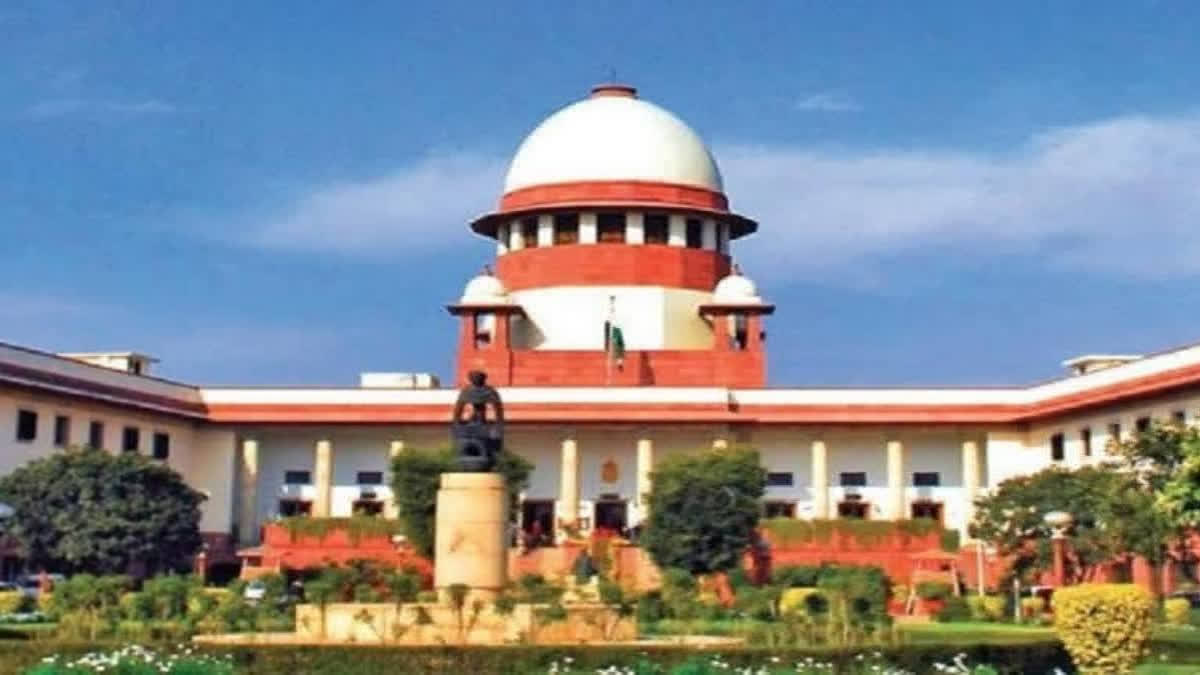New Delhi: Supreme Court judge Justice Dipankar Datta on Friday expressed his discontent over the absence of insightful and constructive discussion, and also the ‘give’ and ‘take’ of ideas, in true democratic spirit to build up a consensus, took a backseat in the verdict delivered a seven-judge bench, led by Chief Justice of India DY Chandrachud, on the minority status of Aligarh Muslim University (AMU).
Justice Datta said there were no physical or virtual meetings between members of the bench post-reservation of judgment, not to speak of the meeting of minds, either immediately after the hearing was concluded or even nine months' thereafter (either collectively or even in small groups of four to five) to explore which acceptable direction should the outcome sail.
Justice Datta, who was among the seven judges, opened his dissenting opinion by saying there is a saying, “the past refuses to lie buried”, and possibly, no other case would demonstrate the validity of this statement more poignantly.
A seven-judge bench, in a majority judgment of 4:3 ratio, overruled a 1967 constitution bench decision, which held that a minority community cannot claim to have established an educational institution if it was created by a statute. The CJI, who authored the majority opinion, said that the minority status of an educational institute will not cease merely because Parliament enacts a regulatory law.
The prologue of Justice Datta's dissenting opinion outlined the ordeal he faced due to the late circulation of the draft majority judgment and also deplored the absence of a consultative decision-making process.
The hearing in the matter was spread over eight days and the judgment was reserved on February 1, 2024. Justice Datta said the task of authoring the judgment had not been assigned to him, which left him with no other option, but to wait for the draft opinion to reach his residential office.
He said on October 17, 2024, the draft opinion authored by CJI, who will demit office on November 10, numbering 117 pages was placed on his desk. “No sooner had I completed reading the draft opinion, came a revised draft opinion of the CJI spread over almost an equal number of pages (117 pages). It reached my residential office on the evening of October 25, 2024, i.e., on the eve of the short Diwali break. Inter alia, there was one very significant change in the revised draft," said Justice Datta.
He said while in the first draft “the test laid down” by a Constitution Bench of five judges of this court in S Azeez Basha and Anr vs Union of India (1967) “to determine if an educational institution is entitled to the guarantee under Article 30(1)” of the Constitution was proposed to be overruled, in the revised draft the view taken in Azeez Basha “that an educational institution is not established by a minority if it derives its legal character through a statute” has been proposed to be overruled.
He said the effect of the revised draft opinion of the CJI is the defenestration of the view taken by Azeez Basha (1967) that Aligarh Muslim University is not a minority institution.
